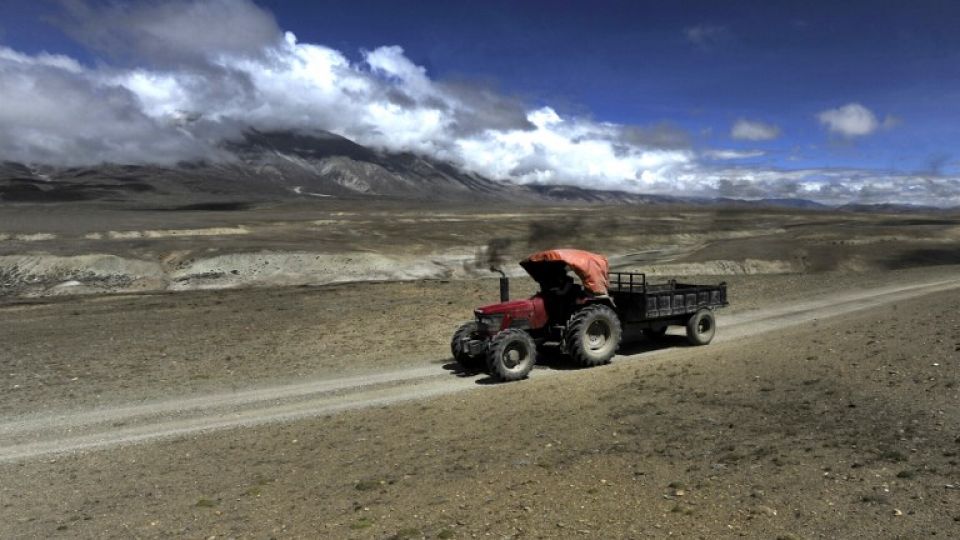October 23, 2019
Reimagining Nepal and developing it warrants a broad outlook that listens to its people and shows regard for their displeasure.
The country’s obsession with bulldozers and excavators as a symbol of development reached an eerie new high yesterday as a viral video sent a chill down people’s spines. In the name of building a road in Dashrath Chand Municipality in Baitadi (roads are synonymous with development in Nepal), an excavator was seen gouging into the land even as locals protested and pelted it with stones.
Read: Excavator operator and three others detained for investigation in Baitadi
As the excavator operator pressed forward using brute force in a disoriented manner, the massive machine’s toothed bucket knocked down a woman to the ground. What’s more, eight other people were injured.
This is sheer madness and it has to stop.
Nepal’s parochial vision of bikas is fuelled by massive infrastructural projects—mainly building roads, oftentimes unscientifically and at the cost of the people for whom the government weaves its narrative of development. But here’s the truth: Development is not merely about building roads. It is about uplifting people and offering them comfortable lifestyles by taking them together in this endeavour. It can never be achieved by coercion and by jeopardising their lives and means of livelihood.
In 2013, the district development committee had restricted the use of bulldozers and excavators in road construction. The committee said that earthmovers could only be used where human force alone could not complete the work. Even in those situations, according to the committee’s rules, they can be used only at the recommendation of technical experts. But recommendations are barely followed in this country.
The haphazard use of heavy equipment for road construction has also made Nepal, already a country vulnerable to disasters, more vulnerable. It was just last year that eight children lost their lives when a landslide came hurling down burying two homes in Thanti Bazaar, Jajarkot, while they were doing their homework. Although it was the landslide that took their lives, hill cutting for construction has exacerbated the phenomena over recent years. Regrettably, excavators and bulldozers tearing through the mountains have become the norm rather than the exception.
Granted, constructing roads is a big part of development. It makes connectivity possible which serves the dual purpose of providing a means of taking local produce to market, and at times, also bringing the market to remote villages. But their construction needs to be planned, and politicians cannot use constructing roads to merely appease their voter base. The elected representatives are equally responsible for stopping this mayhem.
Reimagining Nepal and developing it warrants a broad outlook that listens to its people and shows regard for their displeasure. The people and the government do not have to agree with each other on everything, but they can always find a middle ground. Literally bulldozing their way is no way to pursue ideas of development. Sustainability and need should be at the heart of any development endeavour. Our elected representatives would do well to take note of it.


